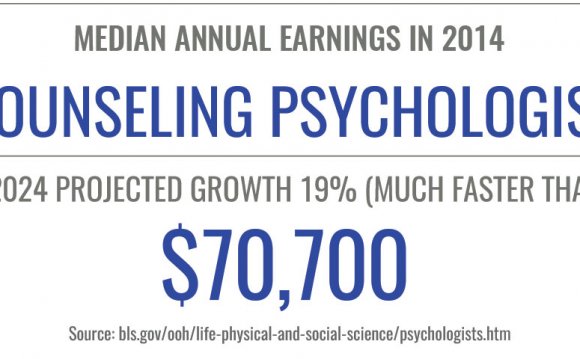
 At times, with all of its ups and downs, life can feel little like a roller coaster. People in general are emotional creatures. Feeling happy, enamored, sad, angry, and scared is normal, and these emotions are part of what makes us human. At times, however, these emotions - particularly the negative ones - can be overwhelming and take on a life of their own.
At times, with all of its ups and downs, life can feel little like a roller coaster. People in general are emotional creatures. Feeling happy, enamored, sad, angry, and scared is normal, and these emotions are part of what makes us human. At times, however, these emotions - particularly the negative ones - can be overwhelming and take on a life of their own.
Counseling psychology is a type of applied psychology that can be used to help people gain control of their feelings. This type of psychology focuses on treating individuals with a variety of different emotional, behavioral, and social problems or disorders. Long with clinical psychology, counseling psychology is one of the most common and widespread psychological specialties.
Because the two are so similar, clinical psychology and counseling psychology are often mistaken for each other. Although these two areas are very similar, they are also somewhat different as well. Clinical psychologists and counseling psychologists both treat wide variety of mental and emotional problems, for instance. However, Counseling psychologists typically focus on individuals whose symptoms are less severe, such as those coping with everyday stresses and adjusting to life's rollercoaster ride. Clinical psychologists, on the other hand, often treat patients with more serious symptoms and disorders.
Most psychologists and historians will agree that counseling psychology has been around for a very long time. Sigmund Freud opened his private practice in 1886, treating his patients with counseling and therapy. Lightner Witmer opened one of the first psychological clinics a short time later, in 1896.
What are the Education Requirements for a Counseling Psychology Career?
Those interested in counseling psychology careers will usually start by earning a four year Bachelor's degree in psychology. In order to start their careers, however, advanced degrees are usually necessary. A number of universities offer Master's and Doctoral degrees in counseling psychology.
The curriculum requirements to become a counseling psychologist are typically very similar from one university to the next. In addition to learning the fundamentals of psychology and research methods, future counseling psychologists will also often learn about different therapy and counseling techniques.
What Types of Therapy do Counseling Psychologists Provide?
Carl Rogers was also one of the founding fathers of person-centered therapy, which is a type of therapy that is based on the patients' own individual life experiences. This type of therapy is still one of the most popular and effective forms of treatment in counseling psychology today. It involves the psychologist listening to and trying to understand his patients. In doing so, the psychologist can then help steer his patients toward changing themselves for the better.
Cognitive behavioral therapy is another common type of treatment used by cognitive psychologists. This type of therapy focuses on clients identifying and understanding their negative beliefs. Since these negative beliefs often affect a person's mood and emotions, the client and the psychologist then work towards changing them.
What Does a Counseling Psychologist Do?
A cognitive psychologist's goal is often to help his patients overcome their negative thoughts and emotions. In general, a psychologist will try to treat patients with a variety of different problems, including depression and anxiety. Those looking to pursue counseling psychology careers, however, can also choose to specialize in certain areas, like grief counseling or vocational stress. The number of patients that a counseling psychologist works with at one time can also vary. Some only work with their patients on a one-on-one situation, while others may work with small groups of people.
The majority of counseling psychologists interact with their patients each and every day. They are often presented with a wide range of mental and emotional problems that people face every day.
Share this Post
INTERESTING PSYCHOLOGY VIDEO













